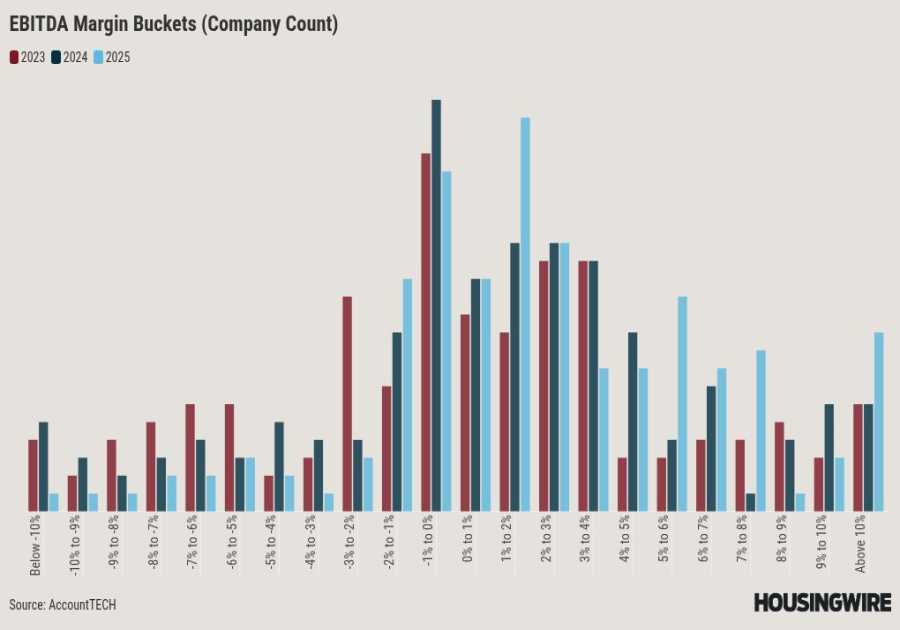Outsourced vs In-House Bookkeeping: Which Is Best for Your Business?
Outsourced vs in-house bookkeeping presents businesses with a critical choice that directly impacts operational efficiency and financial health. The best option for your organization depends on your specific size, budget constraints, and the complexity of your financial operations.
Small business owners often come to me stressed about their bookkeeping strategy, torn between hiring staff or partnering with specialists. I’ve guided hundreds through this decision, and I can tell you – there’s no one-size-fits-all solution, but there is a right answer for your unique situation.

What is the difference between outsourced and in-house bookkeeping?
- Outsourced bookkeeping involves hiring external professionals to manage financial tasks, while in-house bookkeeping relies on employees within your company
- In-house bookkeeping provides direct control over processes but requires significant investment in salaries, benefits, training, and software
- Outsourced solutions offer professional expertise at predictable costs without the overhead of employment
- The decision impacts how you handle sensitive financial data, compliance requirements, and the scalability of your financial operations
- Most businesses benefit from evaluating their growth stage, budget constraints, and control needs before choosing either approach
The Real Cost Comparison: Beyond the Obvious
When comparing bookkeeping options, many business owners fixate solely on the hourly rate or monthly retainer. This narrow view misses the complete financial picture. In-house bookkeepers require far more than just a salary – you’re looking at benefits, payroll taxes, paid time off, training costs, and office space.
For a qualified full-time bookkeeper, expect to pay $45,000-$55,000 annually in salary alone. Add another 20-30% for benefits and taxes, plus ongoing software costs and training. Suddenly, that “affordable” in-house solution costs $65,000+ annually – before considering productivity losses during vacations or turnover expenses.
Outsourced solutions typically range from $500-$2,500 monthly depending on complexity, making them 30-50% less expensive than equivalent in-house talent according to bookkeeping cost comparison for small businesses. The predictable cost structure eliminates surprise expenses and scales with your business needs.
Control vs. Expertise: The Central Tradeoff
The most significant advantage of in-house bookkeeping is control – your team member is immediately accessible and directly supervised. This arrangement works well for businesses with highly specialized needs or those requiring constant financial monitoring.
However, this control comes with limitations. In-house bookkeepers bring individual knowledge but lack the collective expertise of outsourced firms. At Complete Controller, our team’s combined experience spans dozens of industries and hundreds of accounting scenarios – something impossible to replicate with a single hire.
Outsourced providers also follow standardized outsourced financial management standards and implement proven workflows refined across multiple clients. This expertise translates to fewer errors, better compliance, and more strategic financial insights than typically possible with in-house talent.
Technology Integration: Modern Solutions Demand Modern Approaches
Today’s bookkeeping requires sophisticated cloud platforms, automated data capture, and integrated reporting tools. These technologies reduce manual entry, minimize errors, and provide real-time insights previously impossible with traditional methods.
In-house bookkeeping teams often struggle with technology adoption due to limited training budgets and competing priorities. A 2022 survey found that 62% of in-house bookkeepers use outdated software or workarounds because of implementation challenges.
Outsourced bookkeeping firms invest continuously in cutting-edge financial technology because it forms the core of their business model. At Complete Controller, we’ve pioneered cloud-based bookkeeping solutions that integrate seamlessly with popular business management platforms – giving our clients access to financial intelligence that would cost six figures to develop independently.
Small Business Perspective: Startup to Growth Stage
For startups and small businesses, the bookkeeping decision directly impacts survival and growth potential. Limited capital demands careful allocation, making the fixed costs of in-house bookkeeping particularly challenging.
Small businesses benefit most from the flexibility of outsourced solutions. Our small business bookkeeping clients typically start with basic services during their early stages, then add controller oversight and strategic financial planning as they grow – scaling services with revenue without restructuring their finance department.
The expertise gap becomes particularly pronounced for smaller operations. A solo in-house bookkeeper may handle routine transactions effectively but lack knowledge about industry-specific tax advantages or capital structure optimization that outsourced specialists provide.
Medium and Large Business Considerations: The Hybrid Approach
As organizations grow, many discover that neither pure in-house nor fully outsourced models perfectly address their needs. The pros and cons of bookkeeping outsourcing create opportunities for strategic hybrid approaches.
A common arrangement involves keeping strategic financial positions in-house (CFO, Controller) while outsourcing transactional processing, reporting, and specialized functions. This hybrid model leverages the strategic insight of dedicated leadership with the efficiency and scalability of outsourced execution.
For businesses with seasonal fluctuations, outsourced services prevent the painful cycle of hiring during peaks and layoffs during slowdowns. The flexible capacity adjusts naturally to your transaction volume without staffing disruptions.
Compliance and Security: Risk Management Perspective
Financial data represents one of your business’s most sensitive assets. Concerns about outsourcing this information are valid but often based on outdated assumptions about service provider capabilities.
Modern outsourced bookkeeping firms implement industrial-strength security protocols that surpass what most small and mid-sized businesses can afford independently. At Complete Controller, we maintain bank-level encryption, multi-factor authentication, and segregated client environments that meet stringent remote bookkeeping services compliance guidelines.
Compliance expertise represents another critical advantage of outsourced solutions. In-house bookkeepers must constantly research changing regulations across multiple jurisdictions. Professional bookkeeping firms maintain dedicated compliance specialists who track regulatory changes and implement updates across all client systems simultaneously.
Case Study: Manufacturing Company’s Transition Experience
A mid-sized manufacturing client approached us after struggling with their in-house bookkeeping department for years. They faced consistent reporting delays, frequent staff turnover, and growing concerns about compliance with industry-specific regulations.
After transitioning to our outsourced model, they experienced:
- 40% reduction in monthly bookkeeping costs
- Financial reports delivered 10 days faster each month
- Zero compliance issues during subsequent tax audits
- Improved financial visibility that helped secure additional funding
The CFO noted, “We initially worried about losing control, but gained something more valuable – confidence in our numbers. The outsourced team provides deeper expertise than we could afford to hire directly.”
Conclusion: Making Your Decision
The choice between outsourced and in-house bookkeeping ultimately depends on your business’s unique circumstances, growth trajectory, and financial complexity. For most small to mid-sized businesses, outsourced solutions deliver the optimal balance of expertise, cost-effectiveness, and scalability.
As you evaluate options, consider not just current needs but where your business will be in 3-5 years. The right bookkeeping partnership should grow alongside your organization, adapting services as your requirements evolve.
I’ve spent two decades helping businesses transform their financial operations. Whether you choose in-house resources or an outsourced partnership, ensure your decision aligns with your strategic goals rather than just immediate cost concerns. For personalized guidance on optimizing your financial operations, visit Complete Controller to speak with our experienced team.

FAQ
What is the average cost difference between outsourced and in-house bookkeeping?
Outsourced bookkeeping typically costs 30-50% less than maintaining in-house staff when accounting for all expenses. While in-house bookkeepers cost $65,000+ annually including benefits and overhead, comparable outsourced services range from $6,000-$30,000 annually depending on business complexity and service level.
How can I maintain financial control while using outsourced bookkeeping?
Establish clear reporting schedules, implement approval workflows for major transactions, and utilize cloud-based platforms that provide real-time visibility into your financials. Modern outsourced providers offer client portals where you can monitor activity, approve transactions, and access reports anytime.
Is outsourced bookkeeping secure enough for sensitive financial data?
Reputable outsourced bookkeeping firms implement enterprise-grade security measures that often exceed what small businesses can implement internally. Look for providers with SOC certifications, encrypted data transmission, multi-factor authentication, and documented security policies.
Can outsourced bookkeepers handle industry-specific accounting requirements?
Yes, professional outsourced firms typically have specialists with experience across multiple industries. Unlike generalist in-house bookkeepers, outsourced teams can assign industry experts to your account who understand specific compliance requirements, tax considerations, and reporting standards for your sector.
How do I transition from in-house to outsourced bookkeeping without disrupting operations?
The transition typically takes 4-6 weeks. Begin with a comprehensive onboarding process where the outsourced team documents your current procedures, establishes access to systems, and runs parallel processing before taking full responsibility. A phased approach minimizes disruption and ensures continuity.
Sources
- AICPA. (2023). Outsourcing and Accounting. https://www.aicpa.org/resources/article/outsourcing-and-accounting
- Complete Controller. (2022). The Pros and Cons of In-House vs. Outsourced Accounting. CompleteController.com. https://www.completecontroller.com/accounting-outsourcing-economics/
- Complete Controller. (2022). Small Business Bookkeeping: 9 Tips and Tricks. CompleteController.com. https://www.completecontroller.com/small-business-bookkeeping-9-tips-and-tricks/
- Complete Controller. (2022). Outsourcing Accounting with Transaction Cost Economics. CompleteController.com. https://www.completecontroller.com/outsourcing-accounting-with-transaction-cost-economics/
- Decimal. (2022). In-House vs. Outsourced Accounting. https://decimal.com/resources/in-house-vs-outsourced-accounting
- Deloitte. (2022). In Market Quotient: In-house vs. Outsourced Accounting Services: Which is Best for Your Business?
- IRS. (2024). Recordkeeping for Small Businesses and Self-Employed. https://www.irs.gov/businesses/small-businesses-self-employed/recordkeeping
- LegalNest. (2022). In-House vs. Outsourced Bookkeeping for your Business.
- SBA. (2024). Business Guide: Managing Your Business Finances. https://www.sba.gov/business-guide/manage-your-business/finances
- The Finopartners. (2024). Outsourced Bookkeeping vs In-House: Which Is Right for Your Business? TheFinopartners.com
- Timesolv. (2022). In-House vs. Outsourced Legal Bookkeepers: Pros & Cons. Timesolv.com
- U.S. Bureau of Labor Statistics. (2022). Occupational Outlook Handbook: Accountants and Auditors.

About Complete Controller® – America’s Bookkeeping Experts Complete Controller is the Nation’s Leader in virtual bookkeeping, providing service to businesses and households alike. Utilizing Complete Controller’s technology, clients gain access to a cloud platform where their QuickBooks

file, critical financial documents, and back-office tools are hosted in an efficient SSO environment. Complete Controller’s team of certified US-based accounting professionals provide bookkeeping, record storage, performance reporting, and controller services including training, cash-flow management, budgeting and forecasting, process and controls advisement, and bill-pay. With flat-rate service plans, Complete Controller is the most cost-effective expert accounting solution for business, family-office, trusts, and households of any size or complexity.

Reviewed By:
Read More
By: Jennifer Brazer
Title: Outsourced or In‑House Bookkeeping?
Sourced From: www.completecontroller.com/outsourced-or-in%e2%80%91house-bookkeeping/
Published Date: Wed, 06 Aug 2025 14:00:39 +0000
.png)






